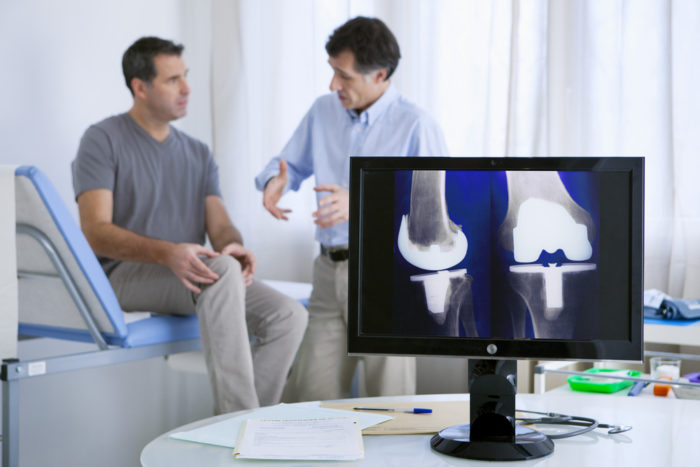How Do I Prepare For A Joint Replacement?

Preparing for joint replacement surgery, such as a hip or knee replacement, is crucial to ensure a successful procedure and a smoother recovery. Here are some essential steps to help you prepare for your joint replacement:
- Consultation with Your Orthopedic Surgeon: Schedule a thorough consultation with your orthopedic surgeon to discuss the need for joint replacement surgery, the specific procedure that will be performed, and what to expect during recovery. This is also an opportunity to ask any questions or voice any concerns you may have.
- Medical Evaluation: Your surgeon will likely request a complete medical evaluation before the surgery. This evaluation may include blood tests, imaging studies, and overall health assessments to ensure that you are physically prepared for the procedure.
- Medications Review: Provide your surgeon with a list of all medications you are currently taking, including prescription drugs, over-the-counter medicines, and supplements. Your surgeon will advise you on which medications to continue or stop before the surgery.
- Lifestyle Adjustments: In the weeks leading to the surgery, consider making some lifestyle adjustments to improve your overall health and recovery. These may include quitting smoking, managing chronic health conditions, and adopting a healthy diet.
- Physical Therapy: Your surgeon may recommend pre-operative physical therapy to strengthen the muscles around the affected joint and improve your overall mobility. Physical therapy can also teach you post-operative exercises and prepare you for rehabilitation.
- Home Preparation: Make arrangements at home to ensure a safe and comfortable recovery. This may involve organizing living spaces to minimize fall hazards, setting up a recovery area on the main floor if your bedroom is upstairs, and ensuring access to essential items within reach.
- Assistive Devices: Obtain any assistive devices necessary after surgery, such as crutches, a walker, or a raised toilet seat. Your surgeon or physical therapist can guide you on the appropriate equipment.
- Social Support: Enlist the support of family members or friends who can assist you during your recovery period. Having someone to help with daily activities and provide emotional support can be invaluable during the healing process.
- Pre-operative Education: Attend any pre-operative education classes offered by the hospital or medical facility. These classes can provide valuable information about what to expect during and after surgery and tips for a successful recovery.
- Post-operative Planning: Discuss post-operative care and rehabilitation plans with your healthcare team. Understand what to expect regarding pain management, wound care, physical therapy, and follow-up appointments.
Following these steps and being well-prepared can enhance your experience and increase the likelihood of successful joint replacement surgery and a smoother recovery process. Remember to communicate openly with your healthcare team, ask questions, and adhere to their recommendations to optimize your outcomes.



